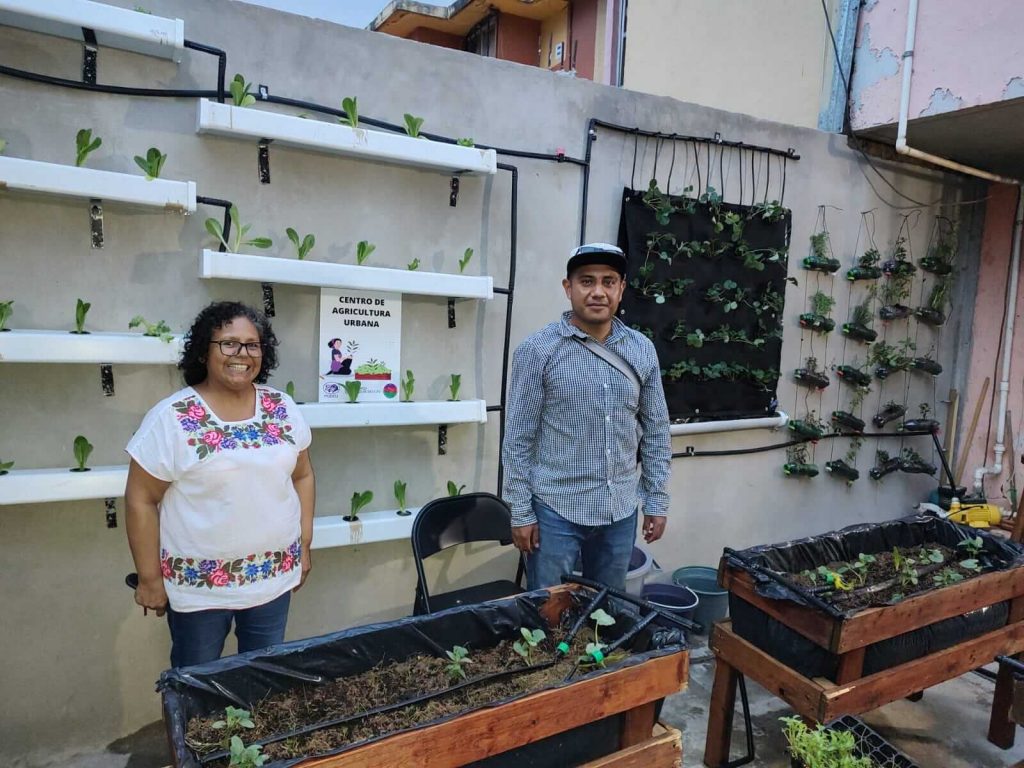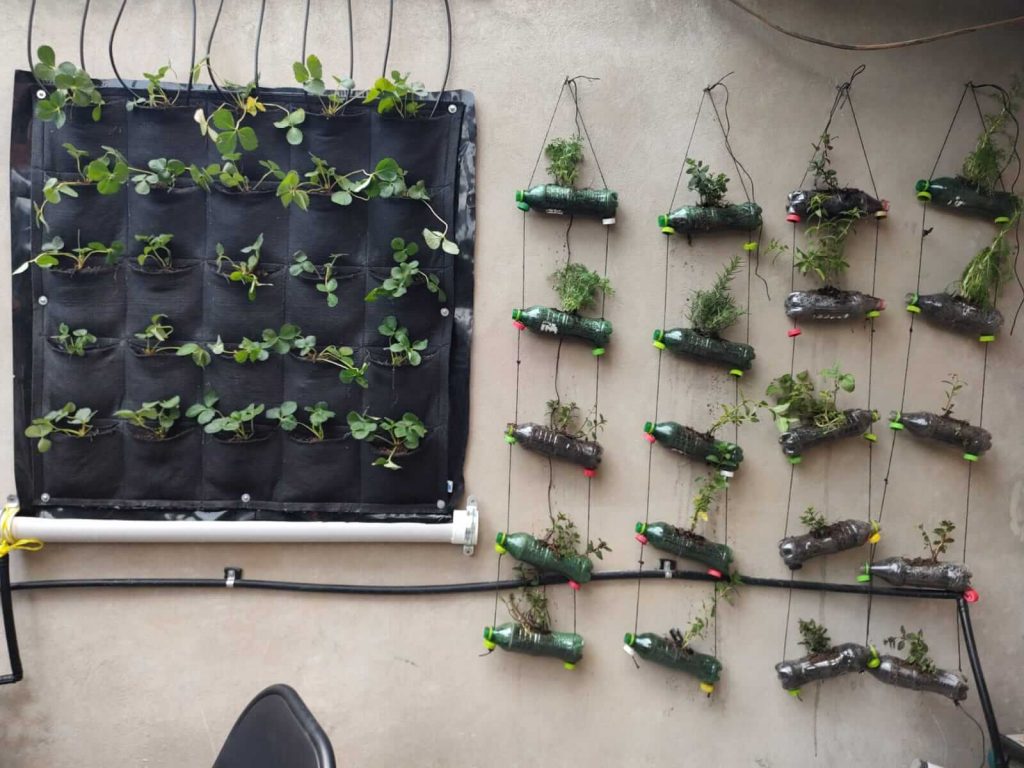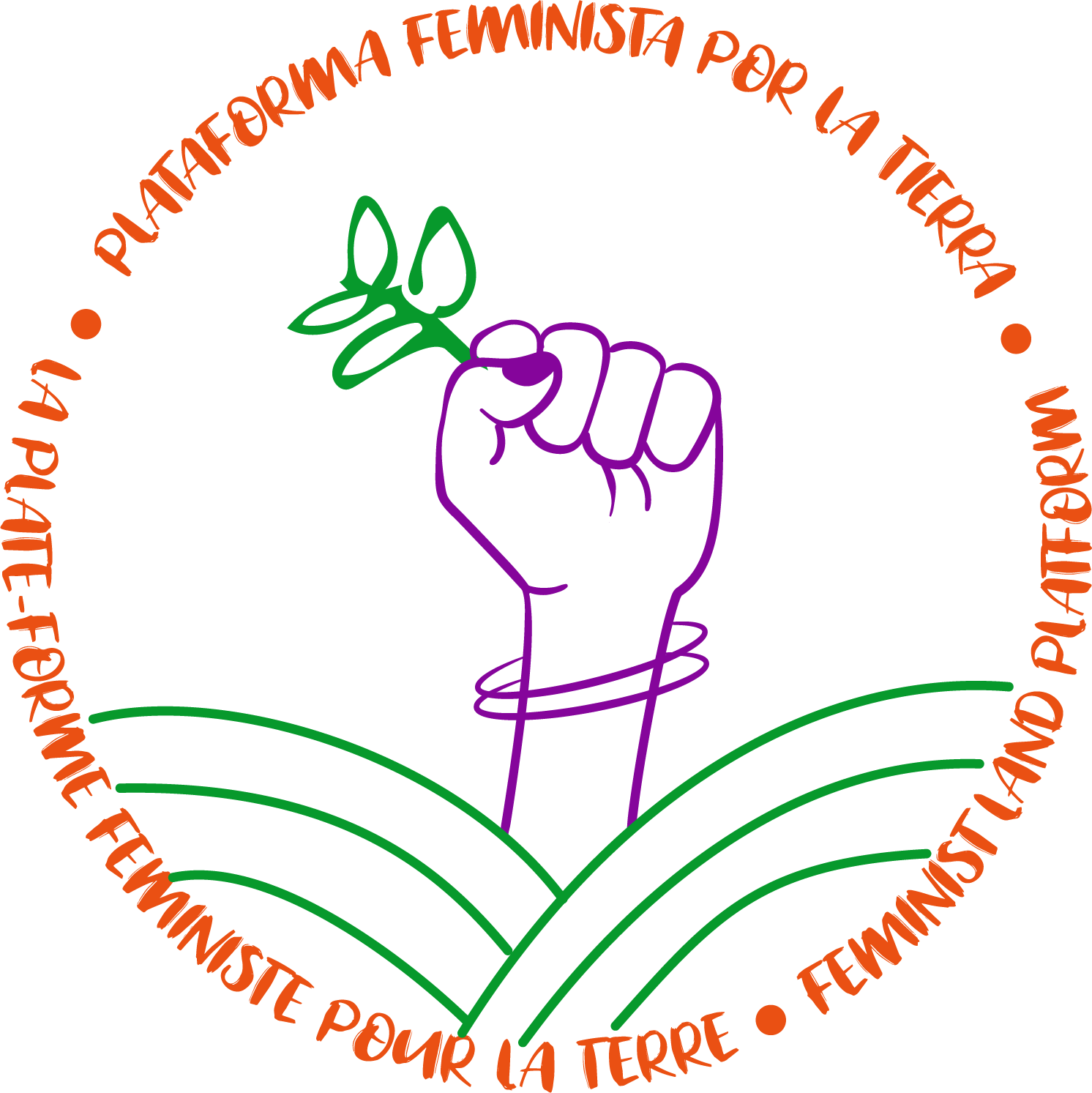“Sowers of Hope: Urban Gardens for Food Security and Community Resilience” is one of the best resilience practices developed by the organization Mujeres, Democracia y Ciudadanía A.C. (MUDECI), one of the members of the Feminist Land Platform (FLP).
MUDECI is a Mexican non-profit civil association created in 2013 by grassroots women with extensive experience in territorial work and activism. Its mission is to secure public recognition for the leadership of organized grassroots women’s groups as agents of change and to position local women-led organizations as driving forces in public agenda-setting and political accountability.
FLP recently mapped some of the best resilience practices of our members so that other communities and organizations can learn and adapt tools and strategies to their local realities. In this article we’ll talk about one of the inspiring practices developed in Mexico by MUDECI. This is part of a series of articles detailing the best practices of each FLP organization. Check out our blog to read about all of them!
Urban agriculture training center
Ecatepec, located on the outskirts of Mexico City, is mostly an urban municipality shaped by the internal migration.. In the 60s and 70s, it was heavily occupied by rural communities who sought better living conditions. The original inhabitants were dedicated to the cultivation of rice, and the tradition of cultivating in backyard orchards remains.
MUDECI has been developing, an urban agriculture training center aiming to local people in Ecatepec to cultivate backyard gardens for self-consumption since May 2022.
The backyard urban gardens were seen as an opportunity to reduce food insecurity in which many people found themselves, especially those who lost their livelihoods during the COVID 19 pandemic. ,This provided access to organic food and also sell or share the surplus of their production with their neighbors.
The development and maintenance of urban gardens responds to several contemporary needs, such as community strengthening, landscape improvement, urban habitability, leisure, environmental education, use of rainwater, and appropriation of public spaces.
It also comes from the understanding that the right to land is key to preserving the various local food systems, consumption is less commodified and traditional food knowledge and practices are valued.
This project is the result of the exchange of experiences among grassroots women from Mexico and Nicaragua and fellow grassroots women from Toluca, Tejupilco, State of Mexico and Jojutla.

The transformative power of urban gardens
“Our initiative has contributed to strengthening urban agriculture as a viable alternative for food production in small spaces”, says Elsa María Arroyo Hernández, MUDECI’s general coordinator.
MUDECI has been achieving a positive impact on the community through its different initiatives, such as the backyard garden project, a community kitchen, the Paulo Freire School Garden, and the selling of local products.
According to Hernández, these initiatives have contributed to improving food security, empowering women, strengthening local economy, and promoting urban agriculture and agroecology. Women have assumed leadership roles in the planning and implementation of climate resilience initiatives.
During this process, communities have diversified the crops they grow to reduce dependence on climate-sensitive crops. Agroecological practices such as rainwater capture, the use of organic fertilizers and the planting of cover crops have been implemented to improve the soil and climate resistance. Finally, efficient irrigation systems have been developed to optimize water use and to reduce vulnerability to drought in their hydroponic garden and green roof.
Hernández points out that the participation of grassroots women in the planning, implementation and evaluation of projects has been very importantas they contributed with ancestral knowledge passed on from generation to generation.
“This has always been an agricultural community and there is a lot of knowledge about the land, which was enriched by the contribution of an agronomist engineer who supported us. It is important to highlight the joy with which the activities such as preparing the land, planting, and distributing the harvest are carried out. That in turn strengthened community work and common good”, she adds.

Some of the results obtained so far:
- 100 boys and girls, 120 women and 12 men were trained in agroecological practices, rabbit farming and free-range chickens.
- The project was selected by the International Institute for Environment and Development (IIED) as a case study.
- They doubled the goal of serving 1,500 low-cost meals in their community kitchen.
As partners for this practice, MUDECI counts on the Center for Economic, Social and Technological Research in Agribusiness and World Agriculture (CIESTAAM) of the Autonomous University of Chapingo, the Central Campesina Cardenista, and the Network of Women Farmers, Producers and Artisans of Mexico.

No comment yet, add your voice below!